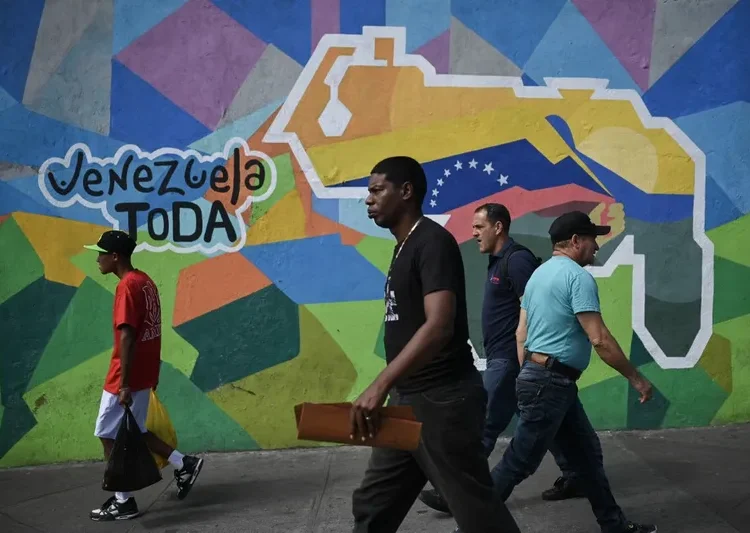On Monday, Venezuelan Minister of Foreign Affairs, Yván Gil, said the country is open to finding a shared way to explore energetic resources in Essequibo, a region disputed by Guyana.
The chancellor made the statement when responding to Brasil de Fato at a breakfast held by Venezuela’s ministry to the national and international press.
“The country is open to finding formulas for the shared development [of Venezuela and Guyana], which precisely correspond to one of the options possibly at the table,” he said.
The “table” the minister referred to is a meeting scheduled for Thursday (14) in Saint Vincent and the Grenadines, and may have the presence of Venezuelan President nicolás Madura and his Guyanese counterpart, Irfaan Ali.
That will be the first time the two leaders have met since the skirmishes about the oil-rich region. Guyana insists on solving the issue at the International Court of Justice, but Caracas refuses the Court and called a referendum to ratify its position among voters.
The tension between the two countries rose after the discovery of huge marine oil reserves on the Essequibo coast, whose exploitation Guyana unilaterally authorized, with concessions granted to the US company Exxon Mobil. The move displeased Venezuela, which said the authorization could not exist, since it is about disputed territory.
Still about the possibility of an oil agreement with Guyana and the participation of Venezuela’s state-owned company PDVSA in the meeting on December 14, the chancellor mentioned, as an example, the Petrocaribe program and the recently firmed agreements between the country and Trinidad and Tobago to exploit gas in the “Dragon” oil field. It was signed last October after the US softened the decades-long sanctions they imposed on Venezuela, consequently boosting talks between the two Latin American countries.
“I cannot say more about this because we are just at the beginning of talks. But what I can say is that Venezuela has elements proving its disposition, policy, diplomacy and intention with obvious examples such as Petrocaribe and other agreements with Trinidad. These are strong examples that could be used in future agreements with the Cooperative Republic of Guyana,” he said.
The role of Brazil
The meeting between Maduro and Ali scheduled for Thursday (14) was a sign of de-escalation between Caracas and Georgetown after weeks of strong and nationalist speeches from both sides.
Indeed, on Monday, during a conversation with journalists, Yván Gil stated “there are huge expectations” for talks, and added that the priority is to “de-escalate tensions, particularly from the part of Guyana, which is being instructed by Exxon Mobil to threaten Venezuela”.
The chancellor also emphasized and thanked the role of Brazil in arranging the meeting between the two presidents, which may be mediated by the country, CELAC and CARICOM.
“President Lula has undisputed regional leadership and is committed to peace and dialog. His determination immediately after seeing the result of the referendum – after seeing that the people of Venezuela had a commitment [to Essequibo] – was a decisive stance for us to decide on dialog", said the minister.




